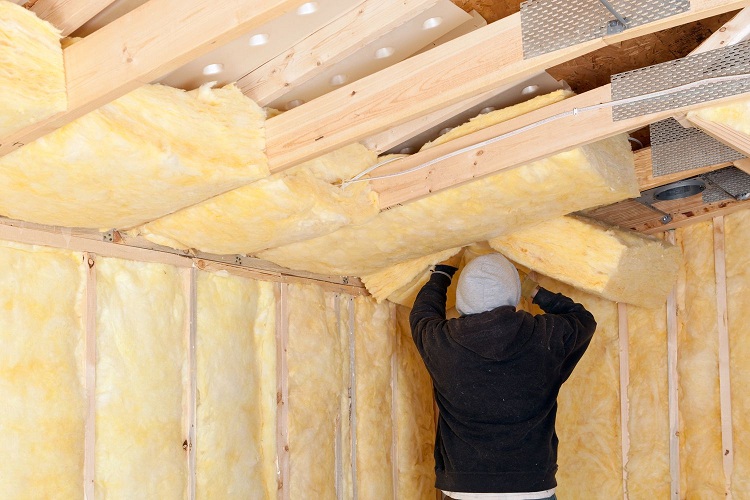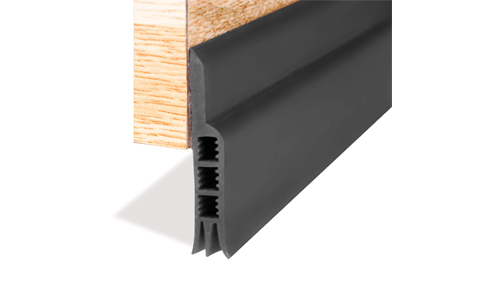
Soundproofing is a good way to limit the amount of noise that enters or escapes a space.
Since noise complaints are a common problem among landlords and their tenants, it makes sense to soundproof properties. However, are landlords bound by law to provide soundproofing?
Landlords are not responsible for soundproofing. However, tenants have the legal right to quiet enjoyment. The unclear legislation in this area means that landlords are typically not required to provide soundproofing. That said, some of them add it willingly and include the cost in your rent.
In the rest of this article, I’ll cover all you need to know about soundproofing and how tenancy laws impact the likelihood of your landlord providing it for you. We’ll also cover the benefits of soundproofing for landlords and how tenants can deal with external noise.
The Right To Quiet Enjoyment Explained
The first step to understanding a landlord’s obligation as it concerns soundproofing is to look at a tenant’s rights under the Quiet Enjoyment Law.
This law provides a tenant with the right to undisturbed use and enjoyment of a property. However, it does not clearly outline what type of noise is allowed in a shared property.
Because of this, your lease will usually explicitly lay out what’s allowed and what isn’t, but the landlord and tenant have to find a solution where that’s not the case.
That said, the Quiet Enjoyment Law doesn’t give you the right to live in total silence. Normal noise like talking, walking, doors closing, etc., can’t be avoided. However, excessive noise from loud music or machinery is a good reason to lodge a noise complaint.
For normal noise, there’s not much the landlord can do. It’s not possible to tell other tenants to stop walking around or stop talking.
However, when it comes to excessive noise, the landlord either has to take action or risk losing a tenant. In that scenario, it makes sense for them to soundproof the property to keep the noise from each flat contained.
Benefits of Soundproofing for a Landlord
There are many good reasons to soundproof a property as a landlord. This includes:
Avoid Noise Complaints
As we’ve mentioned above, tenants are likely to quote their right to quiet enjoyment if they feel they have been inconvenienced by excessive noise. Soundproofing keeps the noise confined to a specific space, and you won’t have to worry about noisy tenants disturbing others around them or breaking any laws. You also won’t get called in frequently to settle noise disputes.
Reduction in Energy Bills
Soundproofing materials also have thermal insulation properties. This means that they are able to limit the amount of heat that leaves or enters an apartment, aside from (of course) keeping out noise. The result is savings on heating and cooling bills because HVAC units also won’t have to work quite as hard, which will only benefit you in the long run – you’ll get the benefit of lower utility bills, and your HVAC system will last longer!
Increased Comfort for Tenants
Soundproofing reduces airborne and impact noise coming from activities from other tenants, passersby, pets, etc. It ensures better sleep and more concentration during work or study. Reduced impact and airborne noise to the barest minimum and cutting off distractions can dramatically improve a tenant’s quality of life, which reduces the risk of major turnover once their contract is up.
Higher Fill Rates
Soundproofing can help increase your chances of retaining tenants or attracting new ones to fill an opening. Quality soundproofing is a good selling point for all prospective tenants. The increased privacy and overall tranquility will make your property a top option for tenants who work from home and those in noisy professions (like music).
Simple Soundproofing Option for Landlords
If you’re looking to install soundproofing in your property as a landlord, there are many products you can buy. They include:
Flooring Underlayment

If you’re considering refurbishing your floors, you should consider including the cost of flooring underlayment in the budget. It will reduce impact noise and also contribute towards keeping out airborne noise.
The FloorMuffler UltraSeal Underlayment on Amazon.com is a good option here. It works for a wide range of floor types and also offers moisture control.
Soundproofing Insulation Materials

Soundproofing insulation material can fit inside ceiling panels and between wall studs to keep noise in (or out). They also serve as thermal insulation materials, improving the property’s overall insulation rating.
BXI Double Noise Insulation Soundproofing Foam and Siless Liner Sound Deadening & Heat Insulation Closed Cell Foam (both from Amazon.com) are good options for you to consider. They are both excellent at noise absorption and soundproofing and are also easy to install.
Door Sweeps or Seals

Door sweeps or seals are great for keeping out airborne noise and vibrations. They block the space between the door and the floor. These seals are the easiest soundproofing bits you can install because they don’t require elaborate installation processes.
Options like the Decorealm Heavy Duty Door Draft and the Kez Twin Door Draft Stopper (both from Amazon.com) only require sliding under or around the door. They also seal the door both ways for added security.
Dealing With Excessive Impact and Airborne Noise as a Tenant
If you’re living in an apartment with excessive impact and airborne noise as a tenant, there are a few things you can do:
- Document the situation. The first step you should take is to document the problem properly. Make a note of the type of noise, frequency, and other such details. Clearly state why the noise is a problem to you.
- Reach out to the neighbor. This is usually the first remedy recommended in these situations. The neighbor may be unaware of their disturbance and may be willing to solve the issue. If you don’t want to reach out to the neighbor directly, you can ask the landlord to step in.
- Request soundproofing. If mediatory efforts do not yield any results, you can ask the landlord to soundproof your apartment. If they refuse, you can ask them for permission to carry out the project on your own if you don’t want to leave the apartment.
- Move out. If you don’t have any strong reasons for holding on to the apartment and your landlord refuses to let you add soundproofing (or do it himself), you can break your lease and move out of the apartment if the noise is too much. If you can’t afford to break your lease, start looking for a new apartment so that you can move out as soon as your lease is up.
Final Thoughts
Landlords are not responsible for soundproofing. However, tenants have the right to complain if they are under a constant barrage of excessive noise.
That said, landlords may benefit from pre-emptively soundproofing their property instead of waiting until a tenant lodges a complaint.
If you’re a tenant experiencing excessive impact or airborne noise, you can ask for a review of the agreement or ask the landlord to soundproof the property. You can also carry out soundproofing or consider moving out.
